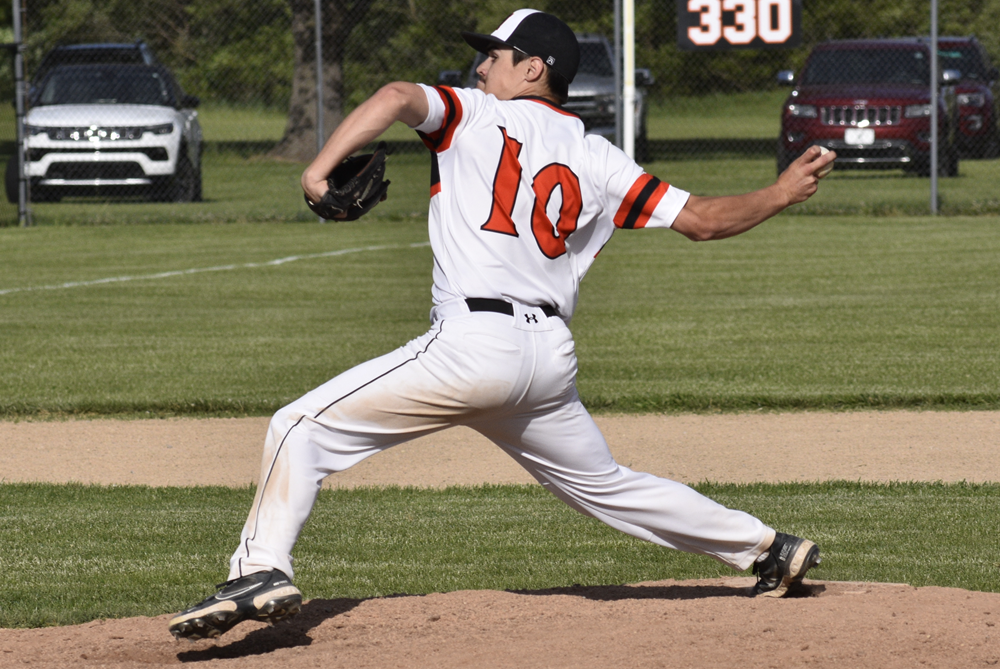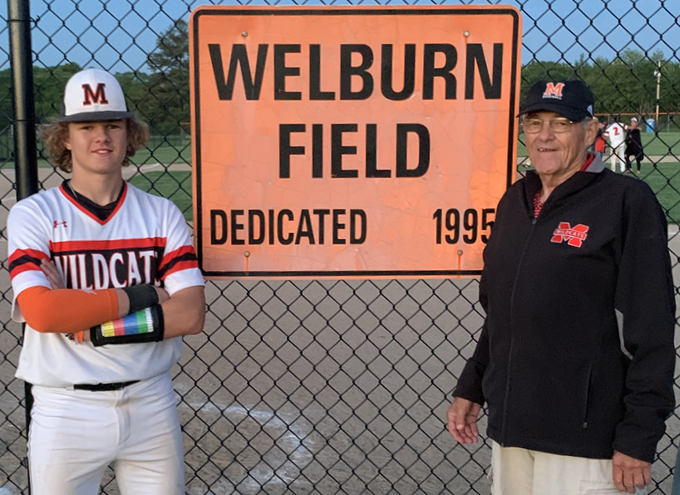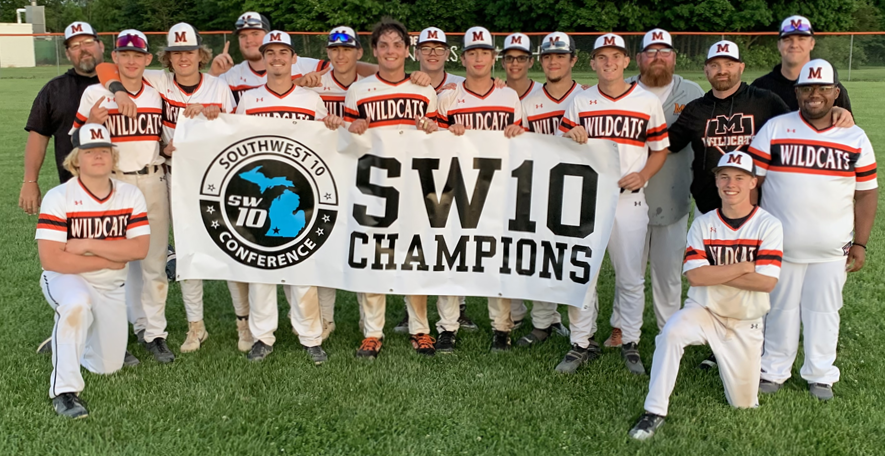
Casting Lines for Future Tournaments
August 12, 2016
By Jack Roberts
MHSAA Executive Director
The MHSAA is best known to the public for the tournaments it conducts to conclude the fall, winter and spring seasons each school year.
These tournaments, the first and largest program of the MHSAA, have survived the Vietnam War, the Korean conflict and two World Wars. They have survived the technology bubble, the housing collapse, the energy crisis and the Great Depression.
MHSAA tournaments existed at the dawn of aviation and at the time of our nation’s lunar landing. Popes, presidents and governors have changed and changed again and again, and MHSAA tournaments roll on year after year.
But the sense of tradition and permanence and inevitability of MHSAA tournaments doesn’t dissuade us from asking questions about our tournaments, even some of the most basic questions. Here are two.
Question #1
I have long been and will always be an advocate for a Ryder Cup format for the MHSAA Golf Finals, and a team tennis approach to the MHSAA Tennis Finals; but 90 years of tradition is hard to overcome. Might this be a more exciting format? Could it be co-ed? Could it reverse the decline in boys tennis participation, and increase girls golf participation? Wouldn’t it be fun to try?
Periodically, the International Olympic Committee requires each of the designated Olympic sports to defend its status, to state its case why the sport should remain a part of the Olympic program. Then, after a series or votes that retain one sport at a time, the IOC drops the sport that makes the weakest case. It does so to make room for one of the previously unlisted sports that makes the best case for inclusion.
This would appear to keep the existing Olympic sports on their toes, and to keep the Olympic movement fresh and reflective of modern trends in sports.
While I would not enjoy the controversy, I can see the potential for some positive results if the MHSAA were to invoke the same policy for determining the 14 tournaments it will provide for girls and the 14 for boys.
This might cause us to consider more deeply what a high school sport should look like, or at least what an MHSAA tournament sport should stand for.
On the one hand, we might be inclined to drop tournaments for those sports that involve mostly non-faculty coaches and non-school venues, or require cooperative programs to generate enough participants to support a team, or resort almost entirely to non-school funding, or cater to individuals more than teams.
Or perhaps this process would cause policymakers to forget traditional thinking and ask: “In this day and age, should we shake off traditional notions of sport and consider more where modern kids are coming from?” That might mean fewer team sports and more individual sports, more “extreme” sports like snowboarding and skateboarding, and more lifetime sports, meaning not just golf and tennis and running sports, but also fishing and even shooting sports.
Currently, MHSAA policy states that the MHSAA will consider sponsorship of a tournament series for any sport which 64 member schools conduct on an interscholastic basis as a result of action by the governing boards of those schools.
Should the only question be how many schools sponsor a sport, or must an activity also have certain qualities and/or avoid certain “defects?” What should an MHSAA tournament sport look like and stand for?
Question #2
Bristling from criticism that his association is a money-grabbing exploiter of children, my counterpart in another state said, “If we were running our programs just to make money, we would do very many things very differently.” I knew exactly what he meant.
Because we care about the health and welfare of students, because we mean what we say that the athletic program needs to maximize the ways it enhances the school experience while minimizing academic conflicts, and because we try to model our claim that no sport is a minor sport when it comes to its potential to teach young people life lessons, we operate our programs in ways that make promoters, marketers and business entrepreneurs laugh, cry or cringe.
If money were the only object, we would seed and select sites to assure the teams that attracted the most spectators had the best chance to advance in our tournaments, regardless of the travel for any team or its fan base. If money were the only object, we would never schedule two tournaments to overlap and compete for public attention, much less tolerate three or four overlapping events. If money were the only object, we would allow signage like NASCAR events and promotions like minor league baseball games.
Those approaches to event sponsorship may not be all wrong; they’re just not all right for us. And we will live with the consequences of our belief system.
During a typical school year, more than 20 percent of the MHSAA’s 2,097 District, Regional and Final tournaments lose money. Not a single site in golf, skiing or tennis makes a single penny. In no sport did every District, Regional and Final site have revenue in excess of direct expenses.
In fact, in only three sports – boys and girls basketball and football – is revenue so much greater than direct expenses overall that it helps to pay for all the other tournaments in which the MHSAA invests.
That’s right: invests. When we present our budget to our board, we talk about the MHSAA’s investment in providing tournament opportunities in all those sports and all those places that cannot sustain the cost of those events on their own. How much is this investment worth to students, schools and society?
These two are core questions that require our focus far in advance of talk about scheduling, site selection, seeding and the myriad matters that too often hijack our time and attention.

Marcellus Baseball Making History with 1st League Title, Perfect Regular-Season Record
By
Scott Hassinger
Special for MHSAA.com
May 28, 2024
MARCELLUS – Crowds have grown so big at Marcellus baseball games this spring that Don Price, the school's athletic director, had to hire extra gate help and make sure the athletic boosters had the concession stand well-stocked.
 The Wildcats have put together a memorable baseball season for this community of just more than 1,000 residents located in Cass County.
The Wildcats have put together a memorable baseball season for this community of just more than 1,000 residents located in Cass County.
Marcellus, ranked No. 8 in Division 4, ended its regular season last week at 27-0, which included capturing first place in the Southwest 10 Conference title with a 19-0 mark.
It was the first unbeaten regular season and conference title in the history of Marcellus' baseball program.
With all of that behind the team now, coach Christian Hutson is busily preparing his ballclub for Saturday's noon District Semifinal clash against Burr Oak. Marcellus, just 13-19 a year ago, features a roster that includes four seniors, a pair of juniors, one sophomore and seven freshmen.
"We're hoping to make a run, but first we have to get through a tough District at Centreville. We have to approach it one game at a time. Any team can beat you on any given day," Hutson said.
"Our seniors have gone through lots of growing pains. They've all been asked to play a huge role for us from a young age,” Hutson added. “Now it's all come to life and they are playing real baseball, making plays and picking one another up. Everything has finally come together for these kids.”
A strong pitching staff has been one of the biggest keys to the Wildcats' success. Senior Dawsen Lehew is 5-0 with one save, a 1.04 ERA and 33 strikeouts. Nathan Mihills, another senior, is also 5-0 with one save, a 2.66 ERA and 32 strikeouts and he starts at first base when freshman Cale Hackenberg takes the mound.
"Dawsen won't be outworked. He comes in day in and day out and gives his best performance," Hutson said. "Nathan is Mr. Reliable. He's the guy who stays after practice and makes sure everything is cleaned up and that the field is raked and there's no trash left in the dugout."
Mihills also fills the role of lead-off hitter and threw a no-hitter against Bangor.
"The juniors and seniors have been through the hardship of it all, but it's helped shape us to where we are now. Our freshmen are a great addition. We're all great friends. I'm not a bit scared of who the ball is hit to because I know they'll come up with a good play,” Mihills said. “I'm a lefty and I feel pretty consistent when my curveball is on. Our coaches do a great job preparing us for game situations."
 Lehew agrees with his senior teammate: "Our confidence allows us to play with high energy. We've been hitting the rock very well and our pitching has been real solid. We have a new pitching coach (Ryan Coffey) who has helped me with my velocity and control. I feel like everything is flowing really well at this point."
Lehew agrees with his senior teammate: "Our confidence allows us to play with high energy. We've been hitting the rock very well and our pitching has been real solid. We have a new pitching coach (Ryan Coffey) who has helped me with my velocity and control. I feel like everything is flowing really well at this point."
Two freshmen have also filled big roles on the hill for Marcellus. Hackenberg has been one of the Wildcats' top aces so far with a 6-0 record, including two saves, a 1.83 ERA and 76 strikeouts. Abram Coffey is 9-0 with two saves, a 2.21 ERA and 67 strikeouts.
"On any given night, any of one of our four pitchers could be our No. 1 starter. That's what makes us so special," Hutson said.
Hackenberg has played baseball since age 9. "It took us a couple games up on varsity to settle in as freshmen, but we've done okay. I have a couple pitches that have worked well for me this season" he said.
Hackenberg is the grandson of Ron Welburn, after whom Marcellus' home field is named. Welburn, a former village president, was instrumental in the construction of the field.
"When I was on the village council our old field was on the other side of town, and that was inconvenient for the school. We got a recreational grant from the State of Michigan to build a new field. I went and spoke to the school, and they thought that would be a fantastic idea. After running into some issues with the contractor, I resigned from the council and with the help of Rock Powell and Roy Mann we worked together and finished the field," Welburn said. "It's fantastic to see these boys having some success now. It's quite an honor to be able to come out and watch them."
Marcellus' team batting average is .348, and the Wildcats have scored 326 runs – an average of 12.1 per game.
Coffey, the squad's No. 2 batter and starting shortstop when he's not pitching, is Marcellus' top hitter with a .587 average, 15 doubles, four triples, four home runs, 49 RBI, 43 stolen bases and a .712 on-base percentage. Hackenberg, the No. 3 hitter, is batting .438 with 13 doubles, 37 RBI and 25 stolen bases with an on-base percentage of .566.
Batting in the clean-up spot is senior catcher Brock Buck. Buck is hitting .339 with five doubles, one home run, 17 RBI, and he has 20 stolen bases with .565 on-base percentage.
"Brock's been our glue behind the plate the last four years," Hutson said.
Senior centerfielder Cole Thornburgh is the Wildcats' No. 5 hitter with a .390 average, including eight doubles, 28 RBI, 23 stolen bases and a .465 on-base percentage.
 "Cole keeps us on our toes and always has something funny to say. We asked him to step up this year, and he's answered the bell," Hutson said.
"Cole keeps us on our toes and always has something funny to say. We asked him to step up this year, and he's answered the bell," Hutson said.
Other starters playing critical roles for Marcellus are juniors Parker Adams at second base and right fielder Brock McWilliams, along with freshmen designated hitter Zade Tyszka and left fielder Matthew Lehew, Dawsen's younger brother.
"At the plate, it's not just one or two guys – it's our entire lineup. Everyone on this team has contributed whether it's with a hit, stolen base or scoring the go-ahead run," Hutson said.
Trust is another huge factor. "Defensively, we have a lot of versatile kids who we can shift around to different positions. I trust every kid we have out on the field," Hutson said.
Hutson points to the Wildcats' team speed as another key element. Marcellus has 229 stolen bases this season.
"We have great team speed, and we pick and choose our spots. Our kids are fast, and that translates to good things happening on the basepaths," Hutson said.
Good team chemistry has also played a vital role.
"This group is just a bunch of good ol’ country boys. They'll go out together fishing or spearing after a night of practice," Hutson said. “Our community has rallied around us, been very supportive and bring so much energy for us. That makes it a lot easier to play at such a high level. Every night feels like a homecoming.”
Marcellus' head coach also pointed out the contributions of assistant coaches Chauncey Hackenberg, Kyle Kahler and Tyler Coffey.
"My three coaches are absolutely amazing. Chauncey is our accountability guy who gets things done. Tyler has been great developing our pitchers. Kyle, my cousin, works with our infielders and is the level-headed one. I'm more of an outfield guy and work a lot with our hitters," Hutson said.
Hutson lists former Decatur head coach Ben Botti and Keith Schreiber as his biggest mentors. Botti is a member of the Michigan High School Baseball Coaches Association Hall of Fame. Schreiber, previously the head coach at Glen Oaks Community College and now heading Dowagiac’s program, coached Hutson on the 2010 GOCC squad that won a Western Conference championship.
"I've had two really good mentors in Ben and Keith. They are amazing coaches with so much baseball knowledge. They both check in with me and are good resources," Hutson said.
For Hutson and his ballclub, the feeling of being undefeated so far hasn't quite sunk in.
"Baseball is a funny game,” Hutson said. “We've had a lot of tight and one-run games, but our kids continue to battle and scrap and get the job done."
 Scott Hassinger is a contributing sportswriter for Leader Publications and previously served as the sports editor for the Three Rivers Commercial-News from 1994-2022. He can be reached at [email protected] with story ideas for Berrien, Cass, St. Joseph and Branch counties.
Scott Hassinger is a contributing sportswriter for Leader Publications and previously served as the sports editor for the Three Rivers Commercial-News from 1994-2022. He can be reached at [email protected] with story ideas for Berrien, Cass, St. Joseph and Branch counties.
PHOTOS (Top) Marcellus senior pitcher Dawsen Lehew makes his move toward the plate during a recent game. (Middle) Marcellus freshman pitcher/third baseman Cale Hackenberg, left, stands with grandfather Ron Welburn, for whom the team’s field is named. (Below) The Marcellus varsity baseball team and coaching staff hold up the Southwest 10 Conference championship banner last week after a doubleheader sweep of Cassopolis. (Photos by Scott Hassinger.)

